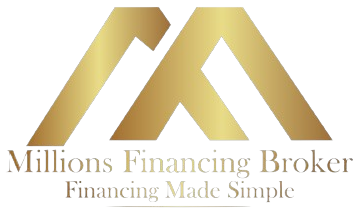Commercial Mortgage Loans

A commercial mortgage loan is a financial product designed specifically for businesses and investors to finance the purchase or refinancing of commercial real estate properties. These loans are used to acquire properties such as office buildings, retail spaces, industrial facilities, apartment complexes, and other income-producing properties. Commercial mortgage loans differ from residential mortgages primarily in terms of loan structure, eligibility criteria, and underwriting standards. Here, we delve into the key aspects, benefits, and considerations of commercial mortgage loans. Understanding the various types of commercial mortgage loans and their terms can help businesses secure the best financing option for their needs.
Key Components of Commercial Mortgage Loans
Loan Amount and LTV: Commercial mortgage loans typically cover a percentage of the property’s appraised value or purchase price, known as the Loan-to-Value (LTV) ratio. Lenders may finance up to 70-80% of the property’s value, depending on factors such as the borrower’s creditworthiness, property type, and market conditions.
Interest Rates and Terms: Commercial mortgage loans may have fixed or variable interest rates. Fixed-rate loans offer stable monthly payments throughout the loan term, providing predictability and protection against interest rate fluctuations. Variable-rate loans, on the other hand, are tied to market indices and may offer lower initial rates but carry the risk of rate increases over time. Loan terms typically range from 5 to 20 years, with amortization periods of up to 30 years.
Collateral and Loan Security: Commercial mortgage loans are secured by the commercial property itself, which serves as collateral for the loan. Lenders assess the property’s value, location, condition, and income-generating potential to determine loan eligibility and terms. Borrowers may also need to provide personal guarantees and financial statements as additional security.
Down Payment and Equity Requirements: Borrowers are required to make a down payment, often ranging from 20% to 30% of the property’s purchase price. Higher down payments may be required for properties with higher risk profiles or for borrowers with less favorable credit histories. Equity in the property demonstrates the borrower’s commitment and reduces the lender’s risk.
Use of Funds: Commercial mortgage loans can be used for various purposes, including purchasing new properties, refinancing existing debt, renovating or expanding properties, and financing property development projects. The use of funds should align with the borrower’s business objectives and financial strategy.
Benefits of Commercial Mortgage Loans
Ownership and Control: Commercial mortgage loans enable businesses to acquire ownership of income-producing properties, providing long-term control over their operational space and potential rental income.
Capital Preservation: By financing commercial real estate purchases with a mortgage loan, businesses can preserve capital for other operational expenses, expansion projects, or investment opportunities.
Tax Benefits: Interest payments on commercial mortgage loans may be tax-deductible, reducing the borrower’s taxable income and providing potential savings for businesses.
Fixed Costs and Predictability: Fixed-rate commercial mortgage loans offer predictable monthly payments, making it easier for businesses to budget and manage cash flow without exposure to interest rate fluctuations.
Investment Diversification: Commercial real estate investments offer potential for income generation through rental income and property appreciation, diversifying investment portfolios and spreading risk across different asset classes.
Considerations in Commercial Mortgage Loans
Risk Assessment: Lenders evaluate various risk factors such as property location, condition, market demand, tenant occupancy, and borrower’s creditworthiness when underwriting commercial mortgage loans. Higher-risk properties or borrowers may face stricter loan terms or higher interest rates.
Loan Terms and Conditions: Borrowers should carefully review and negotiate loan terms, including interest rates, prepayment penalties, loan origination fees, and repayment schedules. Understanding these terms ensures alignment with financial goals and operational requirements.
Market Conditions: Commercial real estate markets can experience fluctuations in property values, rental rates, and economic conditions. Borrowers should consider market trends and forecasts when making investment decisions and selecting loan terms.
Exit Strategies: Businesses should develop exit strategies for commercial mortgage loans, including plans for property sale, refinancing options, or lease agreements to mitigate risks and ensure financial flexibility.
Legal and Regulatory Compliance: Commercial mortgage loans are subject to legal and regulatory requirements, including property zoning, environmental regulations, lease agreements, and compliance with local building codes. Businesses should seek legal advice to navigate these complexities and ensure regulatory compliance.
